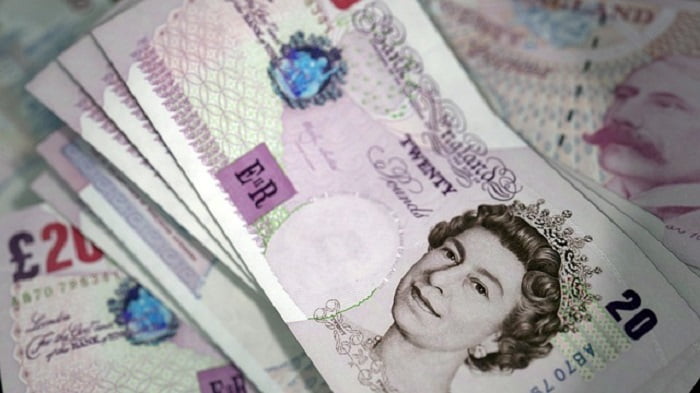It’s likely you’ve felt the financial squeeze on your pockets the last few months.
At the start of 2022, jaws dropped as fuel and energy prices rose.
Six months down the line and it feels like you’re lucky if twenty pounds worth of fuel gets you off the forecourt.
In the UK there’s been a surge of people turning to buses (1 million) and cycling levels have doubled since March.

Unfortunately, the way bank accounts are being ravaged while salaries remain stagnant is understandably bringing a huge amount of stress as people try to navigate the cost of living crisis
Stress is concerning, especially in an economic environment which looks set to worsen.
Long-term stress is linked to mental health conditions, such as anxiety and depression, and also physical illnesses.
Within a system that feels completely broken, how can you find a space for mental wellness that will support you to stay afloat?
The Cost Of Living Crisis

The cost of living crisis in the UK at the moment is at a staggering high – a 40-year high to be precise.
Inflation is hitting us at every angle: from petrol to food to energy bills.
We’re feeling the effects of petrol costs hitting an all-time high coming in at an average of 191p per litre, in some places 200p.
That’s a huge amount considering 12 months ago it was around 130p a litre.

People are currently spending over £100 just to fill up their tanks.
Food prices are soaring with some food items now 15% more expensive than they were before the pandemic when food supply chains were put under strain.
Reuters reported that the UK is set to hit a 20% increase in food prices in early 2023.
On top of petrol and food, we have the increase in energy bills which the BBC reported will average an additional £800 a household per year from October 2022.

Everyone is feeling the pressure, but some are more affected than others.
The cost of living crisis is especially felt by those on low incomes.
Wages and benefits aren’t increasing to match inflation – in fact, in October 2021, benefits were reduced by £20 a week (after being increased during the pandemic)
£20 is a lot of money, especially with the recent rise in costs across all areas.
Social Implications

Lately, we’ve witnessed disruption to train services as workers strike over salaries.
Post Office workers are also about to strike.
In a world where disposable income is increasingly reduced, people are having to go without or get into debt.
You can’t help but wonder if more strikes across more industries are on the horizon.
People debate the cause – some blame capitalism, others the pandemic, war, Brexit, or the government in general.

While the increase in the cost of crude oil has hit the globe, it’s interesting that the French government capped the increase in household energy bills at 4% while in the UK our household energy bills have increased by 54%.
People have literally reached the point of having to choose between heating and eating.
Of course, this issue will be especially difficult as the UK slips into winter.
Who Is Hit The Most By The Cost Of Living Crisis?

55% of people in Britain say that their health has worsened due to the cost of living crisis.
The people most affected are:
- Low-income households
- Middle-income households
- Those with mental health conditions
Research shows that there is a link between poverty and poor physical and mental health.
Vulnerable people, those living with mental health conditions (i.e. anxiety and depression), addictions, and those with learning differences are especially at-risk as financial strain becomes overwhelming.
Financial strain creates stress,which in turn can cause chronic illnesses.
In relation to physical health, people are at increased risk of colds, flu and even cancer and heart disease.
In terms of mental health, stress can lead to anxiety, depression, suicidal behaviours and substance use.
Of course with individuals affected, it won’t take long before the cost of living crisis is also felt by the NHS and public services.
Signs Of Stress

Being aware of the signs of stress means you can start to address it in helpful ways.
Symptoms include:
- Heart palpitations
- Insomnia
- Emotional dysregulation – anger, sadness, feelings of overwhelm (i.e. linked to helplessness)
- Unhealthy thinking patterns – cyclical thoughts
- Anxiety
- Using substances, sex, or gambling in unhealthy ways as “escapism”
What Can You Do To Manage Your Finances And Mental Health?

Unfortunately, neither magic wands nor Robin Hood exists.
The best thing you can do is learn how to manage your mental health and finances effectively.
It’s really important you create the time and find the space to look after yourself.
That means both practically and mentally.
Focus On Finances Head-On

As difficult it can be, you must think about your finances.
Many people, especially those who are living on the breadline and/or who have mental health conditions, can become debilitated by worry.
This might lead you to avoidance – where you actively “stick your head in the sand” and avoid thinking about or tackling your finances, but this exacerbates the problem.
For some, a bill arriving can – understandably, given the current economic climate – lead to outright panic.
With the increased pressure, people can fall further into debt, leading to more stress and illness.
An unhealthy cycle can develop, catastrophic thinking is common and depression and anxiety easily arise.

If you’re experiencing this and your mental health is especially suffering, the first thing to do is talk to someone – whether friends, family or a professional.
Secondly, turn your attention to your finances.
There, the first important thing to do is get to grips with the money you have coming in and what your outgoings are.
It’s helpful to prioritise bills that are essential and to cut out things that are “luxuries” (i.e. streaming subscriptions).
You’ll also want to plan for the future, especially the winter months and more expensive times of the year.
Mind Your Mental Health

It’s important to prioritise your mental health.
If you can manage your emotional responses effectively you’ll be able to approach the financial situation with clarity and foresight.
A good place to start is by reminding yourself of your capabilities.
Make a list of what you can do (i.e. your skills and practical options that will help), also list what you’re good at, and what others think you’re good at.
This helps you to get into the cognitive space of “problem solving”.
You can use a diary or calendar to list activities that are mandatory, including those that you need to do linked to finances (i.e. calling DWP or the bank), but also be sure to include self-care and enjoyable activities as a way to relax.

In relation to looking after your mental and emotional health, there are various areas you can focus on:
- Exercise improves both mental and physical health. The release of endorphins supports your mood, whilst connecting the mind and body helps you to think more clearly. Yoga, walking, and tai chi, as well as cardio sports such as running, swimming, and cycling are all especially good for your heart, lungs and cognitive functioning.
- A healthy diet and staying hydrated gives you energy, clarity, and improved mood, as well as better health.
- Avoid unhealthy substances, especially drugs and alcohol.
- Developing and practising relaxation techniques. Introducing breathing and grounding exercises into your day, especially in the morning as a way to start your day positively.
- Forming a healthy sleeping pattern. This might mean you need to create a routine to help you unwind (i.e. no blue screens after 6pm and/or read a book an hour before lights out).
Seek Support

If you try your best to address your finances and manage your mental health but still find you’re struggling, then it’s advisable to seek professional help.
There are a number of ways you can do this:
- You might be entitled to benefits. It’s worth investigating if you’re from a low-income household, or require particular support in certain areas. When contacting DWP, it’s best to be completely honest about your situation so they can decipher what support you’re eligible for. They’ll want to know your personal information (i.e. name, address etc.), and will require proof of any mental health conditions if a claim goes ahead.
Obviously it might feel difficult to approach DWP if you’re struggling with your mental health. In this case, you can seek advice from a professional such as a doctor (who can refer you to services that support around mental health) on how to approach it.
- You can contact Citizens Advice which supports people around budgeting, benefits and debt.
- Contact your bank – You can discuss bank debts with your bank. They are likely to have a team trained to support people who have mental health issues who are also struggling with debt.
- Get professional help around mental health – This might be accessed through your doctor or a local charity organisation such as Mind.
Final Thoughts

While you might be struggling for financial stability, it’s important to always make time to focus on what’s the most important – that’s you and your health, both mental and physical.
Looking after yourself also makes it easier to manage your own financial affairs with clarity.
It’s important to seek support if you’re finding it a challenge to handle your money or your mental health.
Speaking to someone you trust can really halve the problem and bring new insight.

If things are particularly difficult, talking to a professional will make all the difference.
This is especially true if the stress is causing you to have suicidal thoughts.
In such a case, please call the Samaritans or your local GP for support.
You can access professional services to support you with budgeting as well as help you to take care of your mental health.





